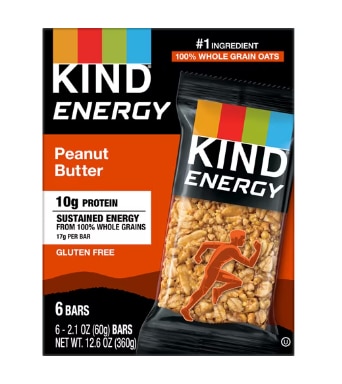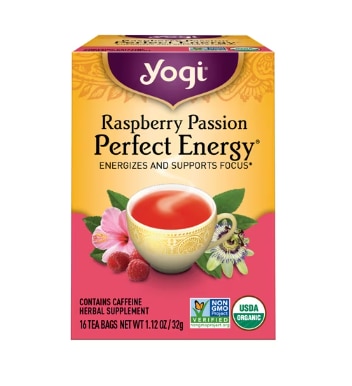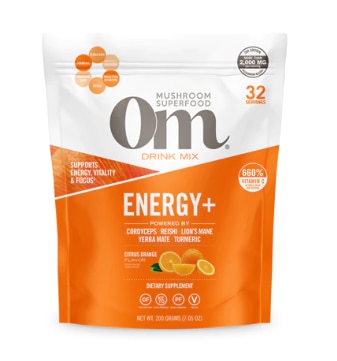Persistent exhaustion, fatigued muscles, sleep complications, unabating brain fog—all may sound like common complaints for adults navigating life in a world that’s perpetually on.
Yet, something more than professional and quotidian stress may be at the root of these prevalent problems: chronic fatigue syndrome, a systemic, nuanced disorder that affects as many as 2.5 million people in the U.S., a figure that’s risen dramatically in the wake of Covid-19’s arrival on the global scene. Middle-aged women, as it stands, are up to four times more likely to experience chronic fatigue syndrome than men—and a whopping 90 percent of all cases, regardless of gender and age, go undiagnosed.
Statistics aside, the impact of chronic fatigue syndrome (CFS) can be downright debilitating. The smallest tasks you once took for granted—brewing a pot of coffee, washing your hair, doing a load of laundry—can feel insurmountable, while maintaining the career, relationships, and activities that once brought you pleasure may become untenable.
Fortunately, the science and medical communities—which were once dismissive of the disorder—have been making impressive strides in determining the mechanisms underlying the disease and formulating novel approaches to treat it.
But what is chronic fatigue syndrome, exactly—and might it explain the general weariness you’ve been experiencing? Further, what can you do to diminish its symptoms while researchers continue to unravel the mysteries surrounding it?
Let’s investigate.
What is chronic fatigue syndrome?
Memes about chronic fatigue syndrome abound. Detractors doubt the veracity of the disease. People in the 80s labeled it “yuppie flu.” A recent poll demonstrates that only one-third of those afflicted with CFS have broached the topic of their symptoms with a healthcare professional out of fear that they wouldn’t be taken seriously. (For a good reason too: 62% of respondents asserted that their physicians believed their exhaustion was due to a “mental” issue.)
But what was once deemed a psychosomatic and even controversial issue that required psychological—not medical—treatment has proven to be a serious, intricate disorder that impacts nearly every major domain of a person’s existence.
Chronic fatigue symdrome symptoms
Increasingly known as myalgic encephalomyelitis (ME) or systemic exertion intolerance disease (SEID), chronic fatigue syndrome is distinguished from “normal” tiredness by its tenacity: Typically, symptoms linger for more than six months (or longer than three months in children) and may include:
- Pervasive—and profound—lethargy
- Dizziness and vertigo
- Sensory sensitivity (such as to light)
- Headaches
- Flu-like symptoms, like a sore throat
- Joint and muscle pain
- Sleep disturbances, including insomnia and sleep that fails to leave you feeling refreshed
- Weakness
- Memory problems
- Difficulty concentrating
- Trouble with word retrieval
- Tender lymph nodes
- Mood swings
- Depression
- Mild fevers
- Disorientation
- Post-exertional malaise—or extreme exhaustion following mental and physical exercises
Herein, of course, lies one of the many complications with chronic fatigue syndrome in Western medicine: Its symptoms impersonate a bevy of other disorders (like depression and fibromyalgia), rendering it both challenging to spot—and tough to treat.
Chronic fatigue syndrome causes
Part of the confusion surrounding CFS/ME is that its etiology—or cause—isn’t abundantly clear. To date, it appears that it may be engendered by:
Immune function
A groundbreaking study published nearly a decade ago (in 2015) found that people in the initial phases of chronic fatigue syndrome possess high levels of cytokines—proteins that dictate immune responses (among other roles). A mounting body of evidence confirms this. The theory? That acute infections, such as Epstein-Barr Virus (EBV), mononucleosis, Covid-19, and other viral, fungal and bacterial illnesses, can shoot the immune system into overdrive and eventually sap it of its power to perform. The result is the hallmark of chronic fatigue syndrome: unending exhaustion.
Hormonal abnormalities
Although a scant amount of research money is dedicated to chronic fatigue syndrome annually, what has been discovered is that it may be caused by hormonal imbalances. A decline in estrogen, for example, may lead to sleep problems and chronic fatigue syndrome, while a 2018 study featured in Frontiers in Endocrinology uncovered a correlation between CFS and low thyroid levels (specifically, T3 and T4).
HPA axis dysfunction
Directly tied into hormonal abnormalities is the growing belief that dysregulation of the hypothalamic-pituitary-adrenal (HPA) axis—an imperative locus in the brain that governs stress responses, immunity, mood, and energy usage—may be the culprit behind myalgic encephalomyelitis: Research speculates that such disequilibrium is provoked by the pituitary gland’s incapacity to produce tropic hormones (such as ACTH and prolactin), an endless loop between oxidative stress and inflammation and, again, low thyroid activity. Similarly, diminished adrenal function has been linked to chronic fatigue syndrome. Its cause? Prolonged stress and the subsequent reduction in the production of the stress hormone, cortisol—which, as you might imagine, also exacerbates the symptoms of chronic fatigue syndrome.
Genetics, trauma (both psychological and physical), difficulty converting nutrients into energy, changes in mitochondrial function—these too may have a hand in chronic fatigue syndrome.
How is chronic fatigue syndrome treated—and what is the naturopathic approach?
There are no known cures for chronic fatigue syndrome. Rather, to help patients manage their symptoms, Western healthcare practitioners tend to rely primarily on medications—such as valacyclovir (Valtrex) and antidepressants—as well as psychological interventions like cognitive-behavioral therapy (CBT) and group support.
Integrative medicine providers, on the other hand, have a more holistic tactic when diagnosing and treating chronic fatigue syndrome.
Instead of masking its primary signs and discomforts with medications, we perceive CFS as a symptom—not of an underlying disease, per se (medical conditions like diabetes and depression must be ruled out before a diagnosis of chronic fatigue syndrome is confirmed), but of something else amiss, and one that involves multiple factors. This might come down to:
- Leaky gut syndrome/irritable bowel disease (or intestinal permeability)
- Tick-borne infections, like Lyme disease
- Mold exposure
- Environmental toxins
From there, we aim to work with the entire body to restore homeostasis and bring back a sense of vibrancy. A naturopathic doctor may prescribe the following, depending on the underlying condition causing chronic fatigue syndrome symptoms:
Low-dose naltrexone
Naltrexone may be more frequently associated with addiction treatment (opioid and alcohol use disorder, in particular) than chronic fatigue syndrome, but low-dose administration of this drug has been shown to promote transformative changes in patients with CFS. In my own practice, my clients have responded tremendously well to low-dose naltrexone—results that have also been scientifically validated. In particular, CFS patients who took naltrexone experienced marked cognitive improvements.
How does it work? Naltrexone acts as an anti-inflammatory (thereby suppressing the production of those cytokines mentioned earlier) while also fostering rejuvenating, feel-good neurotransmitters.
Gut microbiome repair
The connection between gut health and HPA-axis function (and development) has been well-established—so much so, chances are high you’ve heard that the gut microbiome is often referred to as the body’s second brain. Contemporary data demonstrates that disruptions in the gut’s delicate flora may trigger—and mimic—chronic fatigue syndrome symptoms. To this end, an ND (such as myself) may recommend a diet rich in plants, fermented, and pre (and pro) biotic foods, as well as eats high in quercetin—a potent antioxidant that combats oxidative stress and boosts gut microbial diversity.
Key supplements and herbs
The condition spurring symptoms of chronic fatigue syndrome might also call for essential herbs and supplements. To bolster mitochondrial function, for example, I might suggest supplements that naturally encourage healthy energy production, such as B-complex vitamins, CoQ10 and acetyl-L-carnitine. At the same time, I might address ubiquitous nutritional deficiencies, such as supplementing with vitamin D, folic acid and iron, while also suggesting glutathione—a marvelous supplement that may shield the body from free radical damage.†
Hormone ‘therapy’
Symptoms spawned by adrenal hormonal imbalances can be tackled by reviving balance. Clients who test positive for non-Addison’s disease hypocortisolism (low cortisol levels) might benefit from botanicals that keep cortisol in circulation, or intravenous vitamin infusions, particularly those that are packed with energy-amplifying vitamin C and magnesium. As for clients whose cortisol is too high, which can result in a person feeling amped up all the time or anxious, I would suggest botanicals that naturally decrease cortisol, exercising more frequently, and keeping blood sugar levels even keeled by eating three meals a day and at least two healthy snacks packed with protein.
Lifestyle tweaks
If the symptoms of chronic fatigue syndrome present as a reaction to toxins in your environment—such as mold, metals, and chemicals—I may recommend a clean sweep of the places you frequently occupy, as well as your diet. I would also order laboratory tests to evaluate for these toxins. I suggest all of my clients to avoid high mercury seafood, alcohol and nonorganic eats.
Above all, finding a healthcare practitioner who listens to and acknowledges the occasionally devastating symptoms of chronic fatigue syndrome is paramount. When you feel seen, heard, and understood, you experience significantly less stress—and more inclined to heed your body’s clues…and heal.
†These statements have not been approved by the Food and Drug Administration. These products are not intended to diagnose, treat, cure or prevent disease.




